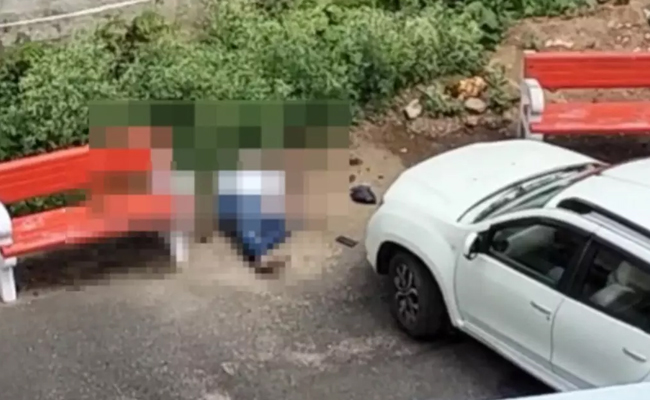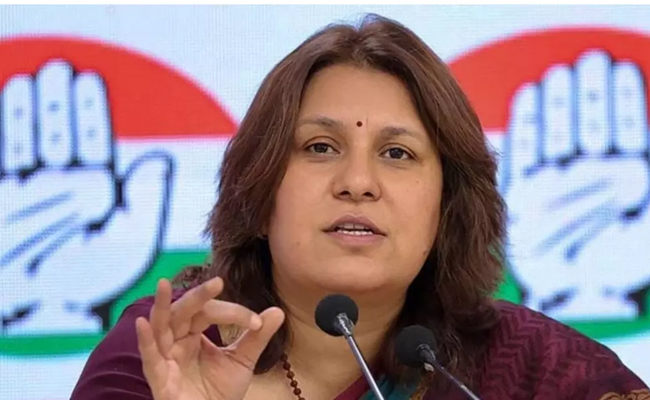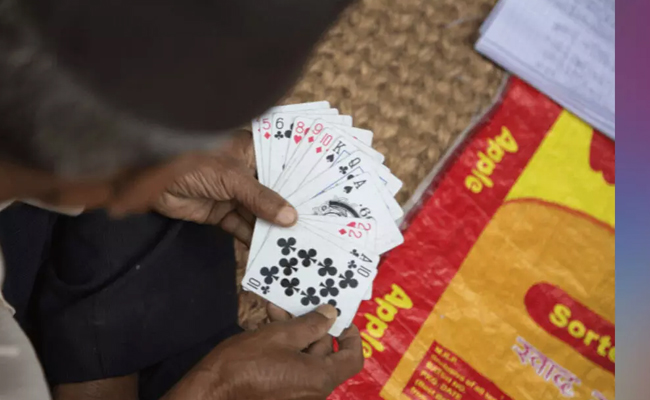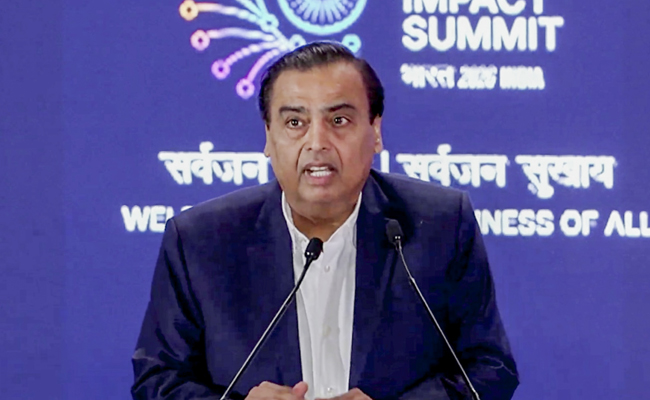Virajpet: In an incident from Virajpet in Kodagu district, a Kerala-based journalist, Rijaz, has claimed that police detained him without following legal procedures and subjected him to an investigation. Rijaz made these serious allegations on social media on Wednesday evening.
Rijaz, who was traveling on a bus with tribals to their settlement, claimed that three police officers in a private car stopped the bus in a remote area and asked him to come with them without showing any warrant.
After a few minutes of argument, the police allegedly forced him into the car and took him to the Virajpet police station for questioning, as stated by the journalist on his Instagram story.
After the investigation was completed, the police released him.
Upon his release, Rijaz shared on Instagram, “Just now I got out of station. Adivasis came to station. Circle Inspector Anoop interrogated me in presence of other 4 officers. He said that since yesterday evening, he had received many calls from superiors and informants claiming that an urban Naxal from Kochi had come to Karnataka to organize. During the interrogation, I told him that I was here to report on the violence faced by Adivasi laborers at the hands of dominant caste employers. When asked why someone from Kerala was here, I replied that since mainstream media weren't reporting on the issue, I had volunteered to come and report on it. During our conversation about the delayed government relief for Adivasis, I quoted, "Justice delayed is justice denied." The inspector responded by saying that i'm speaking like a Naxal. He also mentioned that there's a case against me in Delhi, which I wasn't aware of,” said Rijaz.
Rijaz further alleged that Suresh Bilgeri, a journalist from Times Now, is among those opposing him.
Rijaz also mentioned in another post, “The problem is not of my freedom being violated and me being red tagged. The problem is Adivasi labourers not being allowed to meet anyone from outside.”
The Adivasi Sangarsha Samiti Morcha organized a protest in front of the Taluk office in Virajpet on Wednesday, demanding a 20 lakh rupees compensation for the family of the late Pani Eravara Ponnanna, who was killed in a brutal attack. The committee also called for government employment for his wife. Rijaz was in Karnataka to report on this protest.
Reacting to the allegations, Circle Inspector Anoop of Virajpet stated, “It is true that we questioned Rijaz to understand the identity of an outsider. The allegations made by him and his social media posts have been brought to the attention of senior officials,” he informed.
On December 27th, Pani Eravara Ponnanna, a tribal worker, was shot and killed by the owner of a plantation while he was with his wife in the nearby field.
In response, the Adivasi Sangarsha Samiti Morcha held a protest in front of the Taluk office, condemning the inhuman act and demanding justice. The committee also raised concerns about the severe living conditions of the tribal workers who have been deprived of basic facilities, education, healthcare, and decent employment.
They urged the government to take serious measures to address these issues, provide proper compensation to the family, and ensure the speedy completion of the investigation into the murder. The committee also emphasised that the government should take action against the atrocities faced by the tribal community.
In response to the petition, Virajpet Taluk Tahsildar Ramachandra Mathanadi assured, "We stand with you. The accused will certainly be punished under the law. A compensation of 8.25 lakh rupees has been approved, and half of it will be given to the wife and the mother of the deceased. The wife, who is under 18, will receive a government job after she turns 18. The Welfare Department will provide the necessary facilities for the Scheduled Tribes. Arrangements have been made for the deceased's brother to receive education at a residential school. The petition will be forwarded to the government through the Deputy Commissioner."
AICC-TCU State President Appanna, State Committee Vice-President K.E. Mohan, State General Secretary Clifton Rozario, District Secretary Gauri, District Joint Secretary Bolka Appanna, District Committee Member Gappu, and District President of the Dakshina Kannada chapter Ramanna Vitla spoke at the event, addressing the protesters. Virajpet Taluk President M.K. Mohan and others were also present.
Let the Truth be known. If you read VB and like VB, please be a VB Supporter and Help us deliver the Truth to one and all.
New Delhi (PTI): The Congress on Thursday claimed that nine of its videos created using artificial intelligence have been "forcefully deleted" by BJP governments at the Centre and in states, and said Prime Minister Narendra Modi should work in the nation's interest instead of "curbing" every voice of dissent.
The opposition party alleged that the deletion of the videos was a "blatant misuse" of the blocking rules against political adversaries and that there was a complete lack of transparency in the process.
There was no immediate response from the government or the BJP to the Congress' allegations.
Congress social media department head Supriya Shrinate alleged that the Modi government has left no stone unturned in strangling India's artificial intelligence (AI) potential.
"First, by handing over all our data to America in the trade deal, and now, amid the embarrassing mismanagement at the ongoing AI summit and the shameful revelations of theft and imitation that have tarnished India's image.
"But ironically, the same Narendra Modi, who makes grand statements about AI, actually fears artificial intelligence," she said at a press conference here.
In the last six weeks, nine videos created by the Congress using AI have been "forcefully deleted" by the "coward" prime minister, his central and BJP state governments, Shrinate claimed.
"Let me make it absolutely clear (that) all these videos carried the legally required AI disclaimer. Throughout the entire duration of the videos, 'AI-generated video' is prominently displayed at the top, which clearly proves that there was no attempt to mislead or deceive anyone," she said.
Yet, Prime Minister Modi himself and the BJP are so terrified of the truth that they are even afraid of its dramatic AI representation, she claimed.
"These videos show how cowardly Prime Minister Modi turned his back on his responsibility by telling General Naravane and the Army... How Modi compromised India's national interest while pursuing a trade deal with America," Shrinate said.
She claimed that some deletion orders for these AI videos were sent to social media platforms by police in BJP-ruled states like Bihar, Rajasthan, Madhya Pradesh and Maharashtra while some came directly from the Ministry of Electronics and Information Technology under Union minister Ashwini Vaishnaw.
"This is blatant misuse of the blocking and the IT Rules, 2021, against political adversaries. There is a complete lack of transparency on why a video is being taken down, there is no public order but complete secrecy. Which is why there is no ground for challenging these blockings and deletions in court. At least tell us what was illegal in these videos, what has been violated," Shrinate said.
"This is how authoritarian regimes work -- by giving orders to social media platforms to take down or block content arbitrarily in complete secrecy," she said.
The Congress leader said she welcomes curbing deep fakes and asked if political satires with AI disclaimers are the same.
"Is the government objecting to political satire and commentary on the prime minister which is perfectly legitimate in any democracy?" she asked.
Amid the controversy over Galgotias University displaying a made-in-China robotic dog as its own innovation at the India AI Impact Summit, Shrinate asked when the PM can pass off others' work as his own and rename Congress schemes to fool people, why wouldn't the rest of the country do the same.
"When the prime minister spends the whole day spouting rhetoric, those who steal and imitate are emboldened. When scientific temper is abandoned and superstition and delusions are encouraged, robots will not be built, they will just be bought from China.
"Imitation is not innovation, but does the government care? Modi ji, no matter what you say, your legacy is that private university which has brought us global shame," she said.
"Instead of getting AI videos deleted and curbing every voice of dissent and disagreement, PM Modi, you should work in the nation's interest, stop bowing before America, talk about farmers' rights, don't run away from Parliament, throw out your minister who has connections with a monster like Epstein, and stop compromising the country for Adani," Shrinate said.





